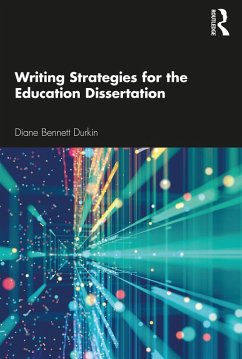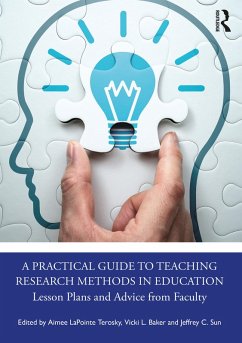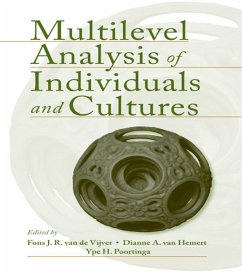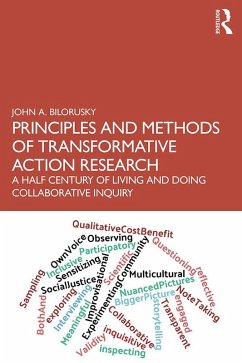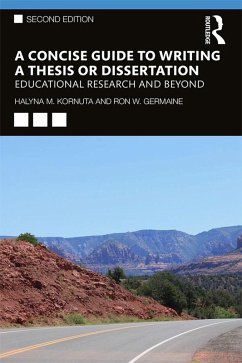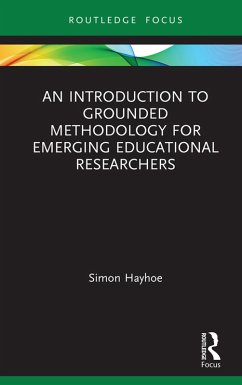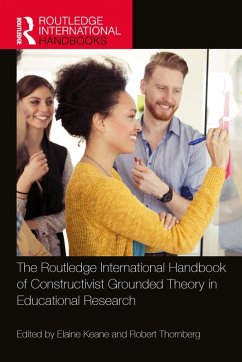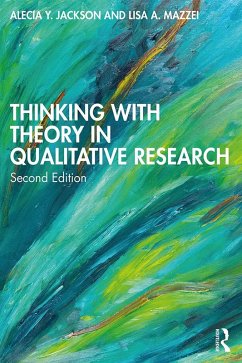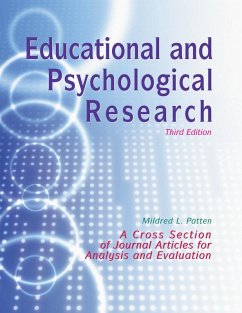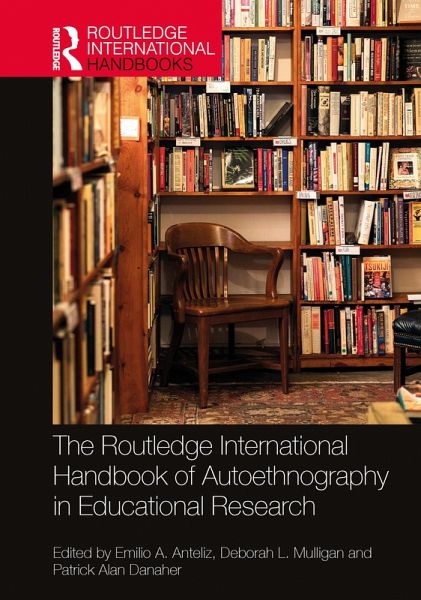
The Routledge International Handbook of Autoethnography in Educational Research (eBook, PDF)
Versandkostenfrei!
Sofort per Download lieferbar
43,95 €
inkl. MwSt.
Weitere Ausgaben:

PAYBACK Punkte
22 °P sammeln!
The Routledge International Handbook of Autoethnography in Educational Research presents diverse and rigorous contemporary research at the intersection between autoethnography and educational research.The handbook investigates the bidirectional connection between autoethnography and educational research in relation to four themes: enhancing teaching and teacher education with autoethnography; enlarging doctoral study and supervision with autoethnography; conducting identity work and relationship-building via autoethnography; and promoting social justice through autoethnography. In addition to ...
The Routledge International Handbook of Autoethnography in Educational Research presents diverse and rigorous contemporary research at the intersection between autoethnography and educational research.
The handbook investigates the bidirectional connection between autoethnography and educational research in relation to four themes: enhancing teaching and teacher education with autoethnography; enlarging doctoral study and supervision with autoethnography; conducting identity work and relationship-building via autoethnography; and promoting social justice through autoethnography. In addition to the synthesising introduction and conclusion chapters, the 27 main chapters in the handbook cover current research from Africa, Aotearoa New Zealand, Australia, Bangladesh, Canada, Spain, the United Kingdom, the United States and Venezuela. The chapters present novel applications of several key concepts and research methods, including activism, arts-based research, critical reflection, decolonising feminism, doctoral study and supervision, hybrid identities, Indigenous research, migrant education, racism, researcher self-efficacy, teacher identity, visual autoethnography and writing as voice.
This book will be of use to all researchers, and doctoral and Masters students, using qualitative and autoethnographic methods in Education and related fields.
The handbook investigates the bidirectional connection between autoethnography and educational research in relation to four themes: enhancing teaching and teacher education with autoethnography; enlarging doctoral study and supervision with autoethnography; conducting identity work and relationship-building via autoethnography; and promoting social justice through autoethnography. In addition to the synthesising introduction and conclusion chapters, the 27 main chapters in the handbook cover current research from Africa, Aotearoa New Zealand, Australia, Bangladesh, Canada, Spain, the United Kingdom, the United States and Venezuela. The chapters present novel applications of several key concepts and research methods, including activism, arts-based research, critical reflection, decolonising feminism, doctoral study and supervision, hybrid identities, Indigenous research, migrant education, racism, researcher self-efficacy, teacher identity, visual autoethnography and writing as voice.
This book will be of use to all researchers, and doctoral and Masters students, using qualitative and autoethnographic methods in Education and related fields.
Dieser Download kann aus rechtlichen Gründen nur mit Rechnungsadresse in A, B, BG, CY, CZ, D, DK, EW, E, FIN, F, GR, HR, H, IRL, I, LT, L, LR, M, NL, PL, P, R, S, SLO, SK ausgeliefert werden.




